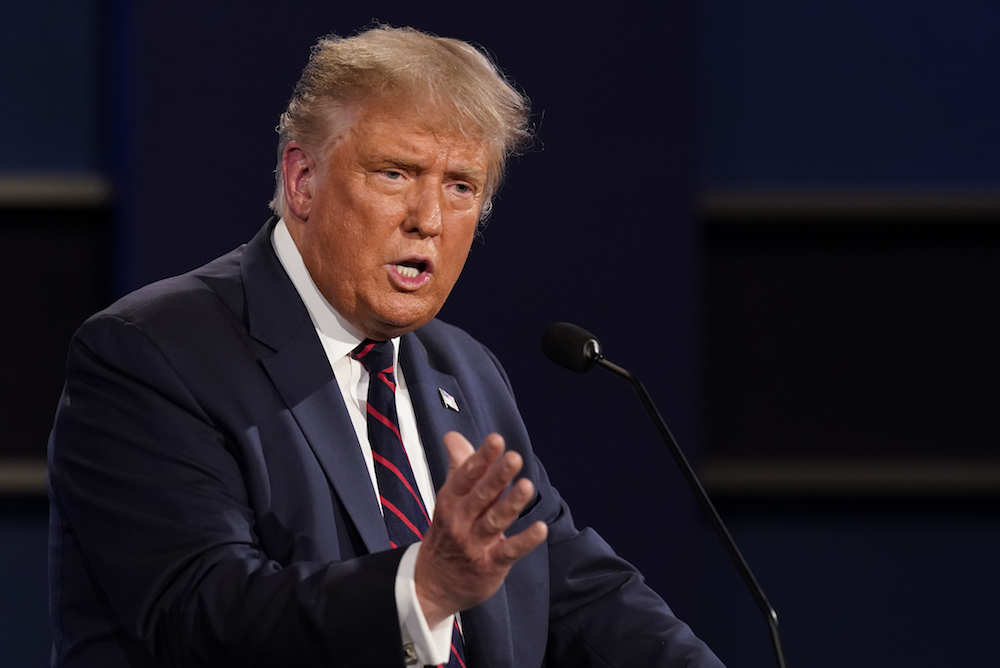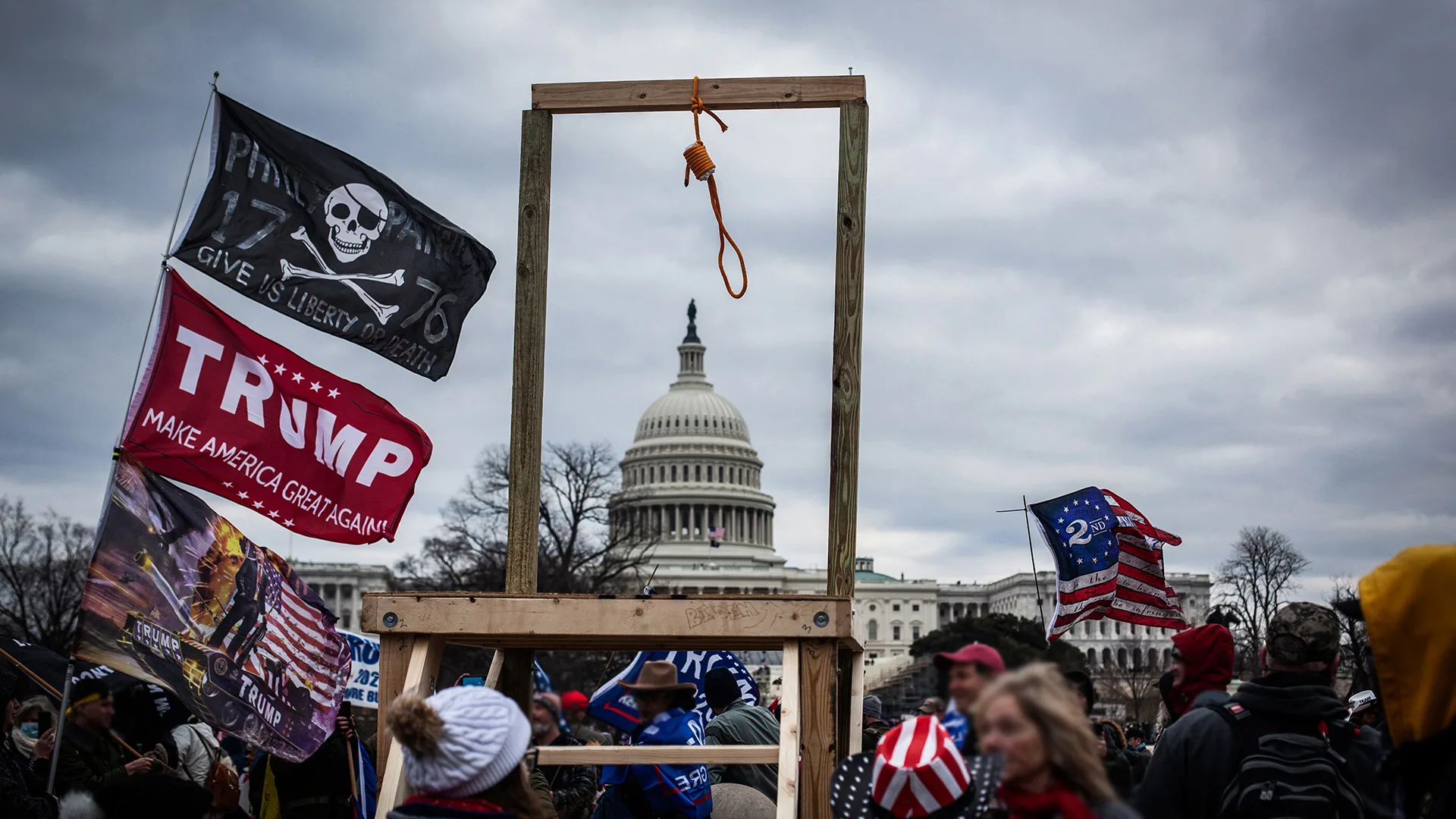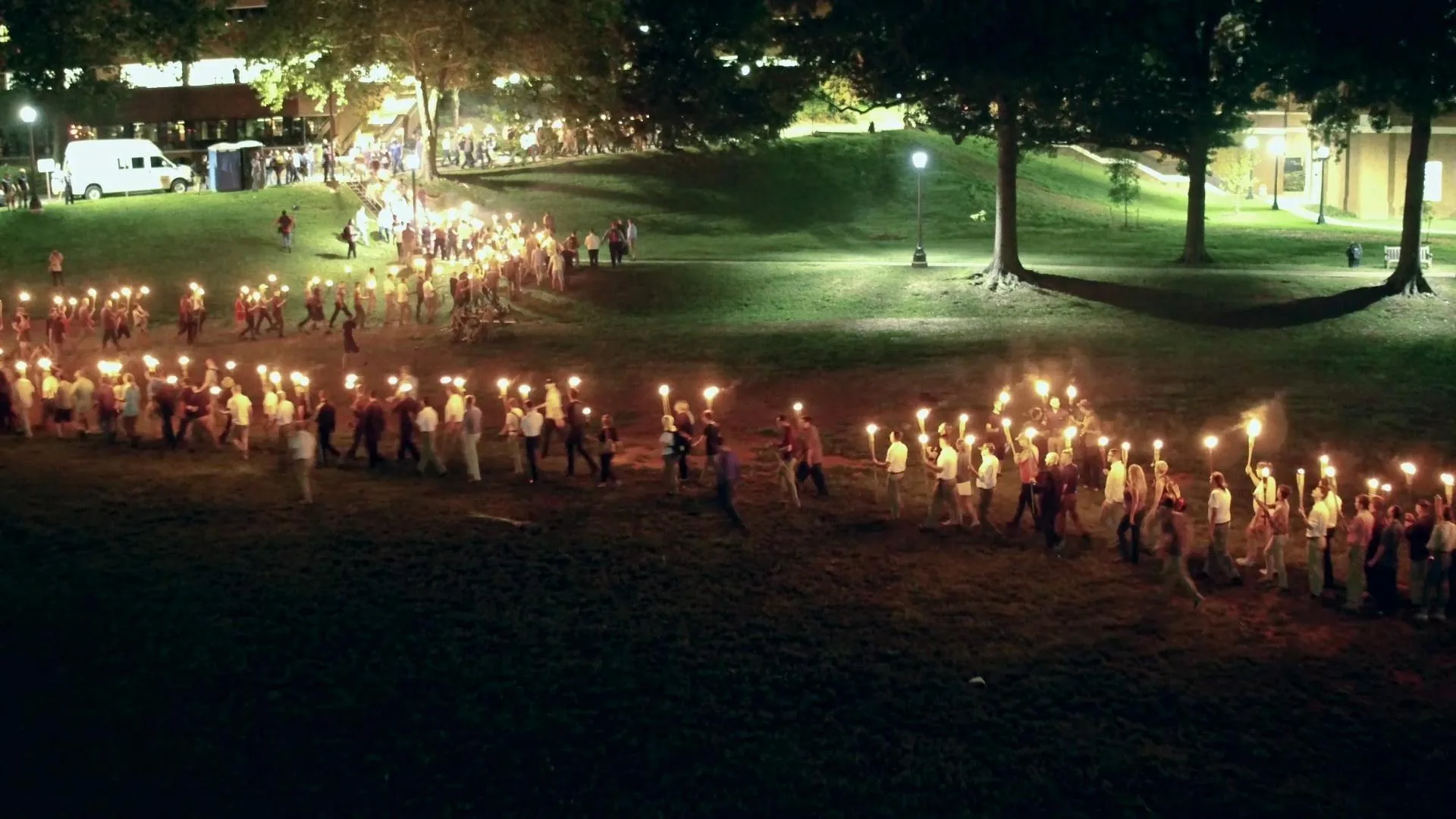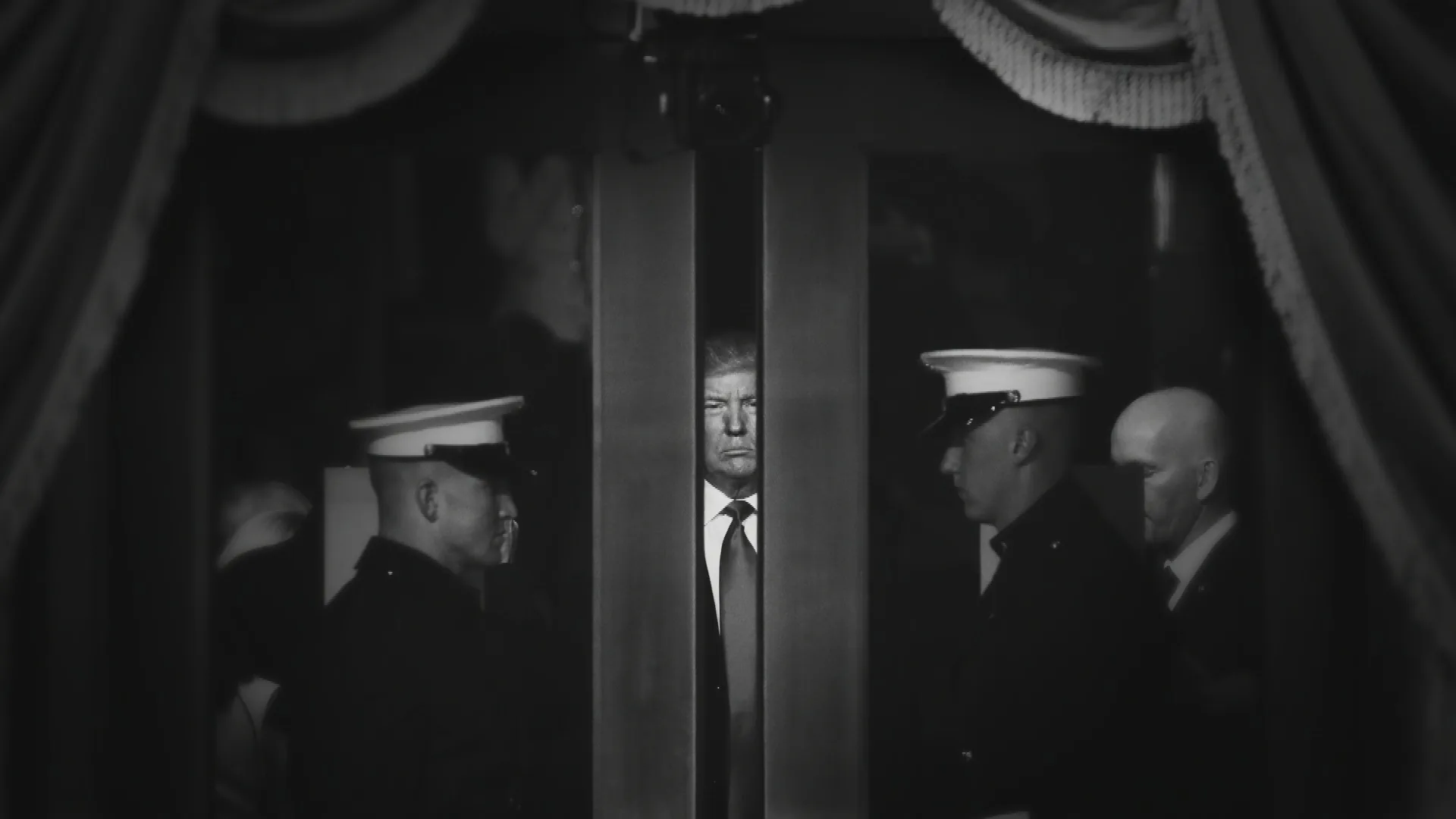In First Debate, President Trump Again Declines to Unequivocally Condemn White Supremacist Groups

September 30, 2020
Share
In the first presidential debate on Sept. 29 with former Vice President Joe Biden, President Donald Trump declined to unequivocally condemn white supremacist and militia groups when asked by moderator Chris Wallace of Fox News. Trump responded, “Sure, I’m willing to do that,” before continuing, “but almost everything I see is from the left wing, not from the right wing,” and telling the Proud Boys, a self-described “Western chauvinist” group that has been involved in clashes, to “stand back and stand by.”
“But I’ll tell you what: Somebody’s got to do something about antifa and the left, because this is not a right-wing problem, this is a left wing” problem, Trump said.
It was not the first time the president has declined to unequivocally condemn white supremacists — most notably, following the 2017 “Unite the Right” rally in Charlottesville, Virginia, at which 32-year-old Heather Heyer was killed by a neo-Nazi who rammed his car into a crowd of anti-racist protesters.
As the below excerpt from the 2018 FRONTLINE documentary Trump’s Takeover explores, in the aftermath of Heyer’s death and other violence at the Charlottesville rally, President Trump went on camera and deviated from his scripted remarks. He condemned “this egregious display of hatred, bigotry and violence” but added an ad-lib: “on many sides, on many sides.”
The response from much of the public — and politicians across the spectrum — was swift and fierce.
“That didn’t go over very well, because it was clear that one side seemed to, you know, initiate this altercation,” Charlie Dent, then a congressman (R-PA), told FRONTLINE. “It was the nationalists, these white nationalists. They were largely responsible for the violence.”
“It’s not a challenge to denounce white nationalists, and yet he couldn’t do it,” said Dan Balz of The Washington Post.
Trump would double down in a later press conference, calling the rally a “horrible, horrible day” but saying: “You had many people in that group other than neo-Nazis and white nationalists, OK?” and “I think there’s blame on both sides. And I have no doubt about it, and you don’t have any doubt about it, either.”
“[Trump] has to fight back,” Corey Lewandowski, Trump’s former campaign manager, told FRONTLINE in Trump’s Takeover, which explored how Trump came to dominate the Republican party. “So when you accuse him of being a racist, he doesn’t want to back up; he wants to double down and prove to you that that’s not true. And that’s what the president is.”
As the 2018 film Documenting Hate: Charlottesville, a collaboration between FRONTLINE and ProPublica, reported, white supremacist leaders, including former KKK head David Duke, praised Trump’s comments. Others in the movement said they felt emboldened.
“He’s opened up a door,” a white nationalist named Matt Heimbach told correspondent A.C. Thompson. “[Trump’s] movement has opened up a door, but it’s up to us to take the initiative.”
Watch Documenting Hate: Charlottesville — in its entirety, below — for an eye-opening examination of how white supremacist ideologies have moved out of the shadows during the Trump era.
Oct. 2, 2020, update: Calling in by phone to the Oct. 1 episode of the FOX News program Hannity, President Trump said: “I’ve said it many times, and let me be clear again. I condemn the KKK. I condemn all white supremacists. I condemn the Proud Boys. I don’t know much about the Proud Boys, almost nothing, but I condemn that.”

Latest Documentaries
Related Stories
Related Stories
Explore
Policies
Teacher Center
Funding for FRONTLINE is provided through the support of PBS viewers and by the Corporation for Public Broadcasting, with major support from Ford Foundation. Additional funding is provided the Abrams Foundation, Park Foundation, John D. and Catherine T. MacArthur Foundation, Heising-Simons Foundation, and the FRONTLINE Trust, with major support from Jon and Jo Ann Hagler on behalf of the Jon L. Hagler Foundation, and additional support from Koo and Patricia Yuen. FRONTLINE is a registered trademark of WGBH Educational Foundation. Web Site Copyright ©1995-2025 WGBH Educational Foundation. PBS is a 501(c)(3) not-for-profit organization.






















